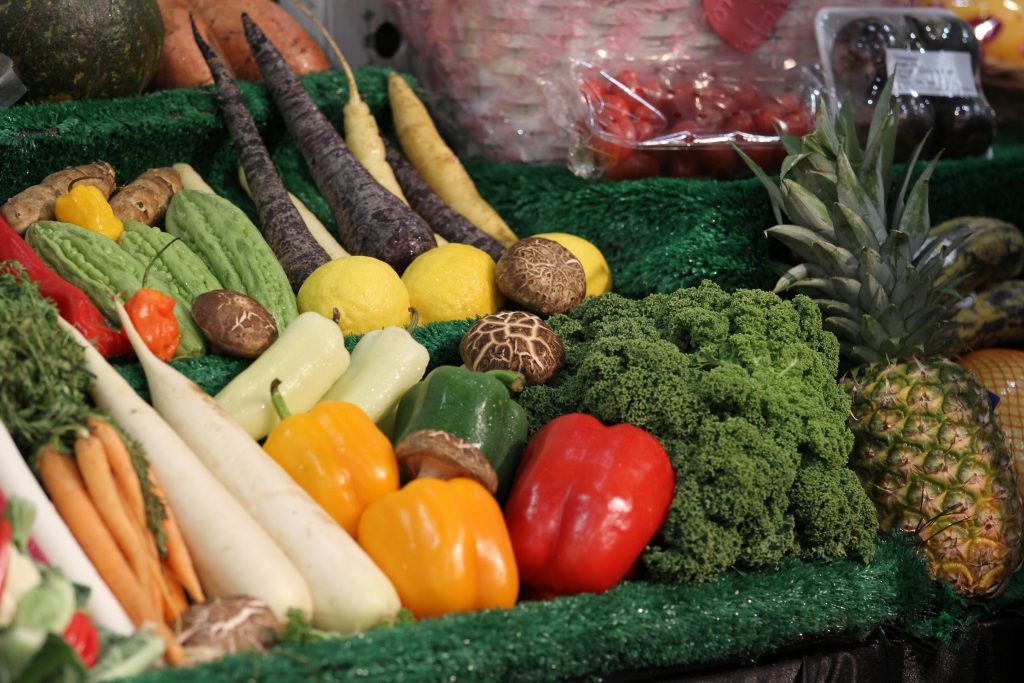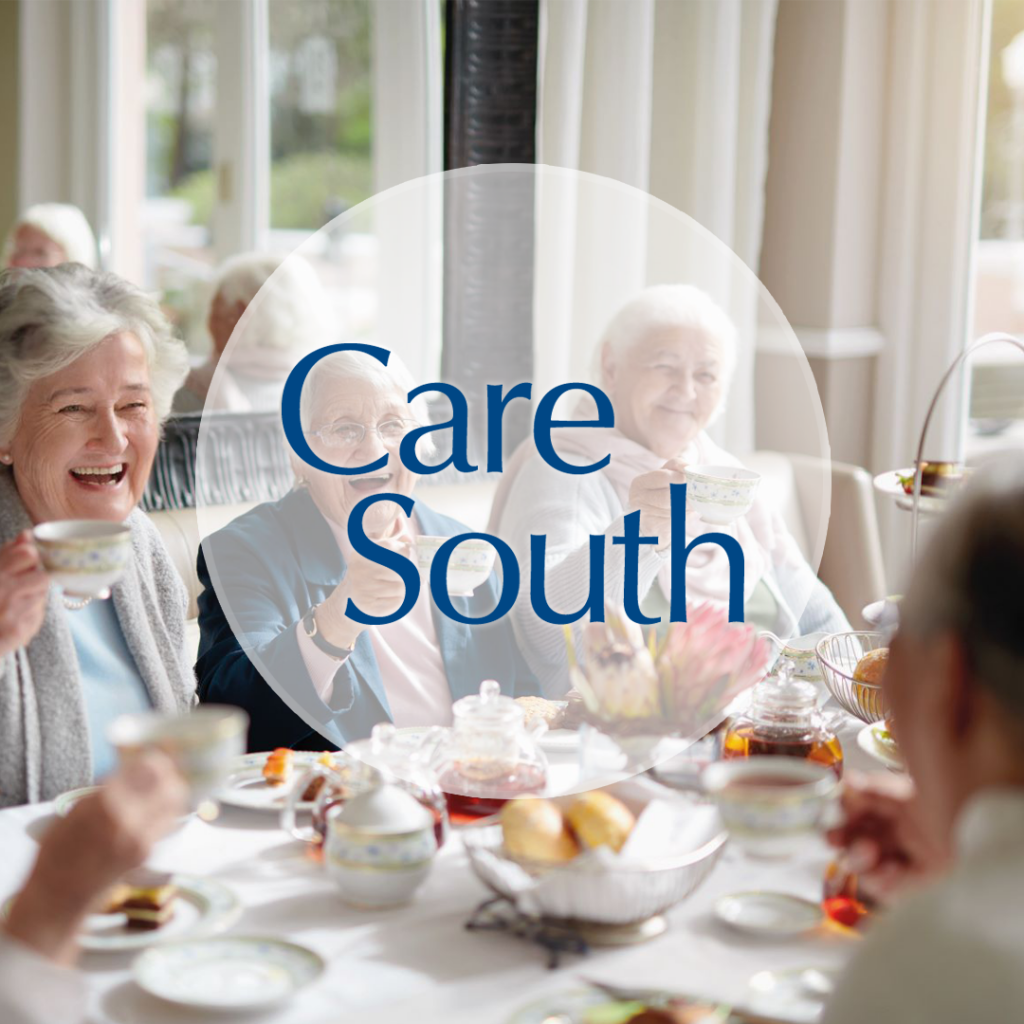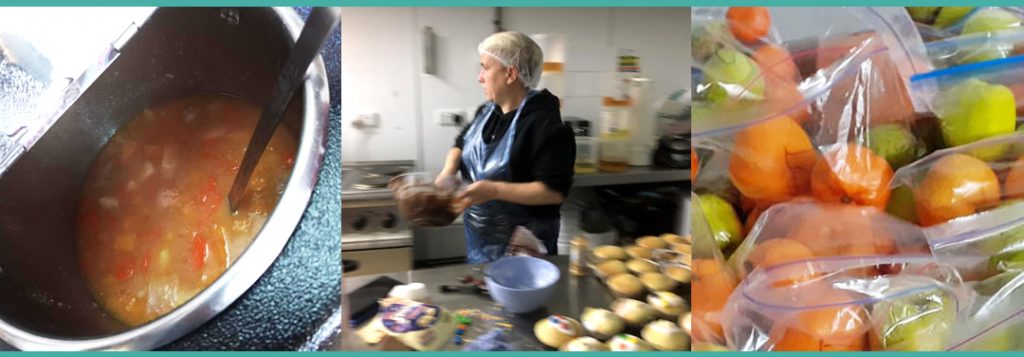
Understanding and implementing proper food safety practices is key to safeguarding both your customers’ well-being and your business’ reputation. A crucial aspect of this is preventing cross-contamination, a widespread risk that can lead to serious health issues and legal complications. Here, we will explore what cross-contamination is, the various types of contaminants, the associated risks, and, most importantly, how to prevent it.
What is food cross-contamination?
Cross-contamination occurs when biological, physical, chemical, or allergenic contaminants transfer from one source to another, posing significant health and safety risks, especially in businesses involved in the storage and preparation of food.
Types of contamination
Biological contamination
Biological contamination involves the presence of harmful microorganisms that can compromise food safety and human health. The main types include:
Bacteria
Bacteria are microscopic organisms that can lead to food poisoning. Common sources of contamination include undercooked food, improperly cooked raw meat, unpasteurized milk, and inadequate fruit and vegetable preparation. For example, salmonella bacteria, residing in the intestinal tract of animals, can contaminate meat when the animal is infected.
Viruses
Viruses in food can cause diseases, often resulting from undercooked seafood or contaminated raw produce. Viruses may also be introduced by infected food handlers. As an example, Hepatitis A is an example of a virus that can contaminate food, if the food handler is already infected.
Parasites
Parasites can enter the food supply through various means. Some parasites come from the soil, contaminating fresh produce, while others, like tapeworms, are transmitted through direct contact with animals and food. One example is soil-borne parasites, which can contaminate fresh produce, posing a risk to consumers.
Prions
Prions are infectious agents formed from misfolded proteins. They pose a high risk of neurodegenerative diseases if contracted. A well-known example is ‘mad cow disease,’ which originated in cattle and transferred to humans through contaminated meat.
Physical contamination
Physical contamination occurs when foreign objects inadvertently enter food, posing potential harm to consumers. Common sources and examples include:
- Packaging materials: Pieces of plastic, glass, or metal from packaging processes
- Equipment parts: Breakage or wear and tear of equipment used in food processing
- Foreign objects: Insects, hair, or other extraneous matter that may find its way into food during handling
Physical contamination can present choking hazards and other serious health risks.
Chemical contamination
Chemical contamination involves the presence of harmful chemicals or toxins in food, whether natural or artificial. Common sources and examples include:
- Pesticides: Transfer from the soil where food is grown or during the manufacturing process
- Cleaning products: Residues from improperly cleaned surfaces and utensils
- Food additives: Improper use or contamination during the manufacturing process
Chemical contamination can lead to poisoning, and its effects can be severe and challenging to treat.
Allergenic contamination
Allergenic contamination occurs when allergens find their way into foods that shouldn’t contain them. The most common allergens include peanuts, tree nuts, milk, eggs, soy, wheat, fish, and shellfish. For those with allergies, even tiny traces of these allergens can lead to adverse reactions. The most common sources of allergenic contamination include:
- Shared equipment and surfaces when not adequately cleaned between uses
- Improper storage practices where allergens are stored near items they shouldn’t come into contact with, leading to cross-contamination
- Insufficient handwashing and cleaning practices, which can lead to cross-contamination after handling allergenic ingredients into dishes which should be allergen-free
- Using the same cooking methods, for example, using the same cooking oil for gluten-free chips that has been used for battered fish
Food businesses should take every precaution to avoid cross-contamination in food preparation and handling to protect customers with food allergies. There are several ways to prevent cross-contamination with allergens, including:
- cleaning utensils before each usage, especially if they were used to prepare meals containing allergens
- washing hands thoroughly between preparing dishes with and without certain allergens
- storing ingredients and prepared foods separately in closed and labelled containers
- keeping ingredients that contain allergens separate from other ingredients
If you can’t avoid cross-contamination in food preparation, you need to inform customers that you’re unable to provide an allergen-free dish.
Understanding these types of contamination is the first step in creating effective prevention strategies. Food handlers must be vigilant to ensure the safety and well-being of consumers by addressing each contamination type appropriately.
Where cross-contamination can occur
Food-to-food contamination
Contamination between food items is a recurring risk, particularly when handling raw and ready-to-eat foods in close proximity. This occurs when harmful microorganisms are transferred from one food item to another, often through contact between raw and cooked foods, where juices from raw meat come into contact with ready-to-eat items. Shared utensils can also be a common cause when food handlers use the same chopping board or utensils for both raw and cooked foods.
Person-to-food contamination
Food handlers, while crucial in preventing contamination, can inadvertently become sources if proper hygiene practices are neglected. Common scenarios include inadequate handwashing, leading to the transfer of bacteria and viruses from the food handler to the food, as well as when food handlers are working while ill. This can lead to the introduction of harmful microorganisms into the food, especially in the case of viruses.
Object or surface to food contamination
Surfaces and objects in a food preparation environment can serve as breeding grounds for contaminants, posing a risk when they come into contact with food. Untidy workspaces can lead to the accumulation of contaminants on countertops, chopping boards, and equipment. Inadequate cleaning can also be a cause when not thoroughly sanitising surfaces after handling raw meat or other potentially contaminated items.
Food serving
Serving food to consumers introduces its own set of potential contamination risks. Using the same serving utensils for different dishes can transfer contaminants, as can failing to adequately sanitise surfaces between servings.
Cleaning processes
While cleaning is pivotal for maintaining hygiene, improper cleaning processes can inadvertently lead to contamination. The use of cleaning agents that are not food-safe may introduce chemicals into the food preparation area. Furthermore, if surfaces and utensils are not sufficiently rinsed after using cleaning products, they can leave a residue, contributing to contamination.
The risks of cross-contamination in food
Foodborne illnesses
One of the most immediate and common risks of cross-contamination is foodborne illnesses. When harmful microorganisms such as bacteria, viruses, parasites, or prions are transferred from contaminated sources to food, consumers are at risk of developing illnesses. Common symptoms of foodborne illnesses include nausea, vomiting, diarrhoea, abdominal pain, and, in severe cases, hospitalisation.
Legal consequences
Failing to prevent cross-contamination can have serious legal implications for food businesses. Adherence to food safety standards and regulations is not only a moral obligation but a legal requirement. If a business is found negligent in preventing cross-contamination and subsequently causing harm to consumers, it may face legal action, including fines and potential closure.
Reputation damage
Cross-contamination incidents can significantly damage the reputation of a food business. News of foodborne illnesses linked to a particular establishment can spread rapidly through social media and reviews, leading to a loss of customer trust. A tarnished reputation may take a considerable amount of time and effort to rebuild, affecting customer loyalty and business sustainability.
Consumer health risks
Certain groups, such as pregnant women, elderly people, and individuals with weakened immune systems, are at higher risk of severe health consequences resulting from cross-contamination. For example, listeria infection, a type of bacterial contamination, can lead to miscarriage in pregnant women. Negligence in preventing cross-contamination not only jeopardises the health of the general population but poses greater risks to vulnerable groups.
Financial impact
Dealing with the aftermath of a cross-contamination incident can have a significant financial impact on a food business. Costs associated with legal battles, compensations, increased insurance premiums, and the need for extensive corrective measures can place a heavy financial burden on the business, potentially leading to financial instability.
Operational disruption
In very serious cases and usually, as part of a broader set of operational issues, discovering cross-contamination issues may call for the temporary closure of a food establishment for thorough cleaning, disinfection, and corrective measures. This operational disruption can result in financial losses, staff inconvenience, and a decline in customer confidence.
How to prevent cross-contamination in food
Preventing cross-contamination is essential in maintaining food safety standards in any professional kitchen or food-handling environment. Comprehensive practices and adherence to guidelines significantly reduce the risk of harmful microorganisms or substances transferring from one source to another. Here are key measures to prevent cross-contamination in your food business.
Ensuring proper food storage is a fundamental step in preventing cross-contamination. Raw and cooked foods should be stored separately in the refrigerator. Raw meats, poultry, and fish must be placed on the bottom shelf to prevent potential drips onto other items. Additionally, utilise airtight containers to seal and separate different food items, preventing the spread of bacteria and odours.
When it comes to utensils, it’s good practice to designate them for specific tasks, however, this doesn’t need to be the case when thorough cleaning practices are maintained. In large businesses, separating utensils can maintain a clear system for all team members. Implement a colour-coded system for utensils, chopping boards, and other tools to easily identify those used for raw and cooked foods. Establish a rigorous cleaning routine for utensils, ensuring they are thoroughly washed after each use to prevent cross-contact between different ingredients.
Maintaining cleanliness in the food preparation area is essential. Regularly clean and disinfect surfaces, especially those in direct contact with food, to eliminate potential contaminants. Immediate disinfection is crucial after surfaces come into contact with raw meat or other potential sources of contamination. Regularly audit cleanliness standards to identify and rectify potential issues promptly.
Hand hygiene is a fundamental preventive measure. Emphasise the importance of thorough hand washing for all individuals handling food. Encourage staff to wash their hands frequently, especially after handling raw ingredients. Provide easily accessible handwashing stations with soap and disposable towels. Consider the use of disposable gloves, changing them regularly to prevent the transfer of contaminants.
Implement safe shopping practices to prevent cross-contamination before reaching the kitchen. Use separate bags for raw meat to avoid bacterial contamination. Regularly replace plastic bags and promptly discard any with meat juice spillages. Ensure that shopping bags designated for raw meat are cleaned and sanitised regularly.
Following food safety regulations is non-negotiable. Adhering to strict guidelines for covering raw and opened food products, keeping them separate from sealed or ready-to-eat items, and storing meat and fish on the bottom shelf of the fridge are crucial practices.
Education and training are key components. Ensuring all staff members are thoroughly trained in proper food handling techniques, with regular refresher courses, reinforces best practices and addresses emerging issues. Our Level 2 Food Hygiene course provides team members with a foundational understanding of food safety, covering topics such as cross-contamination, personal hygiene, and safe food handling practices. The Level 3 Food Hygiene course, designed for supervisors and managers, offers a more in-depth exploration of these topics, providing the necessary knowledge to implement and oversee robust food safety measures within the establishment.
Monitoring and enforcing hygiene practices are ongoing efforts. Regular audits help identify and rectify potential sources of cross-contamination, and enforcing hygiene procedures can ensure staff are constantly aware to minimise the risk of cross-contamination.
Hazard Analysis and Critical Control Points (HACCP) is a systematic approach to identifying, evaluating, and controlling potential hazards. Develop and implement a HACCP plan tailored to your specific food handling processes. This involves analysing each step of food preparation, identifying critical control points, and establishing procedures to ensure food safety at each stage. Regularly review and update the HACCP plan based on changing circumstances and feedback.
By understanding the risks, adhering to food safety guidelines, and implementing preventive measures, you can contribute to creating a safe and hygienic environment for both your customers and your business. Stay informed, stay vigilant, and prioritise food safety at every stage of your food handling process.
Frequently asked questions
What are the main causes of cross-contamination in food?
The main causes of cross-contamination in food are typically associated with the transfer of harmful microorganisms or substances from one source to another. This can occur through various means, such as when raw meats come into contact with ready-to-eat foods, leading to the transfer of bacteria. Additionally, using the same chopping boards, knives, or utensils for both raw and cooked foods can contribute to cross-contamination. Inadequate hand washing or handling food without proper protection further increases the risk of introducing contaminants.
How do you avoid food cross-contamination?
Avoiding food cross-contamination involves implementing several proactive measures. To prevent bacterial transfer, it is crucial to store raw meats separately from ready-to-eat items. Using separate utensils, chopping boards, and knives for raw and cooked foods helps avoid cross-contact. Regular and thorough handwashing, especially after handling raw ingredients, is a fundamental practice. Considering the use of disposable gloves and changing them regularly adds an extra layer of protection against contamination.
How do you prevent cross-contamination in food storage?
Preventing cross-contamination in food storage requires careful attention to practices. Covering raw and opened food products and storing them separately from sealed or ready-to-eat items is essential. Storing raw meats on the bottom shelf of the fridge helps avoid drips onto other ingredients, and sealing containers securely prevents the spread of bacteria and odours between different food items.
Can cross-contamination occur during delivery?
Yes, cross-contamination can occur during food delivery if proper precautions are not observed. Inadequate temperature control during transportation can lead to bacterial growth, and rough handling or contact with unsanitary surfaces during delivery can introduce contaminants.
Can cross-contamination occur during serving?
Cross-contamination can occur during serving if proper processes are not followed. Using the same serving utensils for different dishes can transfer contaminants, and failing to sufficiently sanitise surfaces between servings can contribute to cross-contamination.
Can cross-contamination occur during cleaning?
Yes, cross-contamination can occur during cleaning if proper hygiene practices are not maintained. The use of cleaning agents that are not food-safe may introduce chemicals into the food preparation area, and leaving residue from cleaning products on surfaces or utensils can contribute to contamination. It is crucial to follow rigorous cleaning procedures to maintain a safe and hygienic food handling environment.
Can cross-contamination cause food poisoning?
Yes, cross-contamination is a common cause of food poisoning. When harmful microorganisms are transferred from contaminated sources to food, consumers are at risk of developing foodborne illnesses with symptoms ranging from mild discomfort to severe cases requiring hospitalisation.
Is cross-contamination dangerous?
Yes, cross-contamination is dangerous as it poses significant risks to public health. It can lead to foodborne illnesses, legal consequences, reputation damage, financial impact, and operational disruption for food establishments.
Is cross-contamination difficult to prevent?
While preventing cross-contamination requires diligence and adherence to proper procedures, it is not inherently difficult. With thorough education, training, and the consistent implementation of food safety measures, businesses can significantly reduce the risk of cross-contamination and ensure a safe food handling environment.












